In the context of the rapid increase in measles cases and the death of 3 children, the Ho Chi Minh City Department of Health said it has proposed the Ho Chi Minh City People's Committee to declare a measles epidemic and issue a plan to proactively respond to measles in Ho Chi Minh City.
3 children died of measles
According to the Ho Chi Minh City Center for Disease Control (HCDC), there have been 3 children who have died from measles in Ho Chi Minh City since June.
Accordingly, the number of measles cases in Ho Chi Minh City has been increasing since the end of May and in the last week there were 60 cases of rash fever suspected of measles. The three districts with the highest number of measles cases are Binh Tan, Binh Chanh and Hoc Mon.
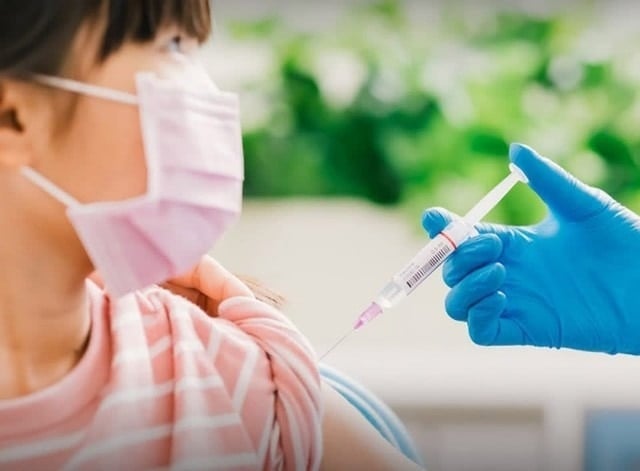 |
| Illustration photo. |
According to reports from hospitals in Ho Chi Minh City, as of August 4, there were 505 cases of rash fever suspected of measles, of which 262 tested positive, more than 50% were cases from other provinces and cities coming to the city for examination and treatment.
Only counting cases with addresses in Ho Chi Minh City, there were 201 cases of rash fever suspected of measles, of which 116 tested positive. Meanwhile, from 2021 to 2023, the whole city had only one positive test case.
Currently, the city has 48 wards and communes in 14 districts with confirmed measles cases; 8 districts have 2 or more wards and communes with cases.
Of the 116 confirmed cases, 27.6% were children under 9 months old, 78.4% were children under 5 years old. The number of patients who had not been vaccinated or had not received 2 doses of measles vaccine accounted for 66% and up to 30% had unknown vaccination history.
Health experts say measles is considered a global threat because the measles virus of the Paramyxoviridae family spreads rapidly through the respiratory tract from sick people to healthy people in the community or even across borders.
Measles is dangerous because it not only causes acute symptoms but also puts patients at risk of nervous system infections, motor system disorders, damage to multiple organs in the body, and can leave many serious, long-lasting or even lifelong complications for patients such as encephalitis, meningitis, otitis media, pneumonia, diarrhea, corneal ulcers, blindness, etc.
In addition, measles is especially dangerous because it has the ability to erase immune memory, destroying an average of about 40 types of antibodies that can fight pathogens.
In children, a 2019 study by geneticist Stephen Elledge at Harvard University showed that measles eliminates between 11% and 73% of protective antibodies in children.
That is, when infected with measles, the patient's immune system will be destroyed and reset to its original immature, incomplete state like that of a newborn child.
To reduce the risk and prevent a resurgence of measles, WHO emphasizes that vaccination is the only way to protect children and adults from this potentially dangerous disease. Countries around the world are required to achieve and maintain a coverage rate of over 95% with 2 doses of measles vaccine.
Children and adults need to proactively get vaccinated against measles fully and on schedule to help the body produce specific antibodies against the measles virus, helping to prevent the risk of measles and severe complications, with outstanding effectiveness of up to 98%.
In addition, each person needs to proactively clean their eyes, nose, and throat with antiseptic solution every day. Limit gathering in crowded places, avoid close contact with people showing signs of measles or suspected of having the disease, and do not share personal items with people with the disease. Keep your living space clean and supplement foods to help strengthen the immune system.
If you experience symptoms of measles (fever, runny nose, dry cough, red eyes, sensitivity to light, rash all over the body), you should quickly go to the nearest medical center or facility for timely examination and treatment.
There have been 8 deaths due to rabies.
According to information from the Binh Thuan CDC, the area has just recorded another suspected death due to rabies. This is the 8th death since the beginning of 2024.
Specifically, the 49-year-old female patient (Ham Hiep commune, Ham Thuan Bac district) lives alone, her family does not know if she was bitten by a dog or cat; vaccination history is unknown.
The patient has a dog at home and it is noted that the dog is currently alive and well. On August 3, 2024, the patient's family noticed that he had a mild fever, was panicky, and tired, and did not take any medication.
On August 5, 2024, the patient had difficulty breathing, was afraid of water and wind, and ran away into the dark. Therefore, the patient's family took him to Binh Thuan General Hospital. After examination and consultation, the doctor there concluded that he suspected rabies and transferred the patient to Ho Chi Minh City Hospital for Tropical Diseases.
At the Hospital for Tropical Diseases in Ho Chi Minh City, the patient had a saliva sample taken for testing (PCR), with a positive result for rabies virus. The patient became seriously ill and was asked to go home by his family and died on August 6, 2024.
There is currently no specific treatment for rabies, but it is completely preventable. To proactively prevent rabies, people need to take the following measures: People who raise dogs and cats need to be fully vaccinated against rabies and get annual booster shots according to veterinary recommendations; dogs must be chained, locked up, and muzzled when going out.
Do not play with or tease dogs or cats. When bitten by a dog or cat, wash the wound immediately under running water with soap for 15 minutes; if soap is not available, rinse the wound with plain water. Afterwards, the wound should be cleaned with 70% alcohol or iodine alcohol; avoid bruising the wound and do not cover the wound.
Go to a medical facility promptly for examination, consultation and injection of rabies vaccine and anti-rabies serum; absolutely do not self-treat or seek treatment from a traditional healer.
Communicate and instruct children on how to prevent dog and cat bites and to immediately notify their parents or relatives after being bitten by a dog or cat.
The Ministry of Health recommends that people do not hesitate or hesitate to get vaccinated against rabies when bitten by a dog or animal. Go immediately to the nearest medical facility for timely advice and treatment.
Doctor Nguyen Tuan Hai, Safpo/Potec vaccination system, said that people, if possible, can get vaccinated against rabies before exposure.
Accordingly, if you get a preventive injection, you only need 3 injections, which is completely flexible in terms of time. If you are unfortunately bitten by a dog or cat, the injection schedule will be simpler, you only need 2 injections of vaccine without having to inject rabies serum even if the wound is severe, the bite site is close to the central nervous system or where many nerves are concentrated.
Meanwhile, if you do not get vaccinated against rabies before being bitten by a dog or cat, you need to get 5 injections within a strict time limit of one month, especially in cases of severe wounds or vital locations, you need to get serum injections, which greatly affects your psychology and daily routine, as well as causing more pain and side effects.
Especially in remote areas, rabies serum and vaccine are not always available, there are times when they are scarce, causing people who have been bitten by animals to be very confused and scared.
For children, pre-exposure rabies vaccination is especially important because children often do not pay attention to injuries caused by animals while playing with pets and may forget to notify their parents (except in severe cases).
Furthermore, children have short bodies, so when bitten by dogs, they are more likely to be bitten on the head, face, and neck than adults, which is also the reason why the rabies virus moves faster to the central nervous system and causes disease more quickly.
In addition, due to concerns that the rabies vaccine has side effects, affects the nervous system, and causes memory loss, Dr. Hai said that the old generation of vaccines also have this problem.
However, rabies vaccines are now produced using modern technology and do not contain nerve cells, so they are harmless and do not affect the health or memory of users.
The new generation rabies vaccine uses fractional centrifugation technique, ensuring low levels of impurities and complying with World Health Organization (WHO) quality standards (less than 10 nanograms per dose).
Some vaccines do not use the preservative thimerosal (mercury), so the new generation of rabies vaccines also minimizes local side effects such as swelling, pain, fever, etc. compared to the old generation of vaccines that have been discontinued.
Get into trouble because of eating raw food
Last July, after the patient went to Duc Giang General Hospital (Hanoi), doctors there discovered that he was infected with lung flukes. The patient said that he often went to work, crossed the stream, caught live crabs to grill and eat. The patient has now been cured, discharged from the hospital and instructed to return for regular check-ups.
There are many different species of lung flukes (more than 40 species), of which the two most harmful species are Paragonimus heterotremus and Paragonimus westermani.
These lung flukes are often quite large in size, and adult flukes can be seen clearly with the naked eye.
According to doctors at Duc Giang General Hospital, in some northern mountainous provinces such as Dien Bien, Lai Chau, Son La, people have the habit of eating raw shrimp and crab (raw or undercooked).
When eating uncooked shrimp or crab containing lung fluke larvae, the fluke larvae enter the stomach and intestines (the larvae escape from the cyst in the duodenum), penetrate the wall of the digestive tract into the abdomen, then penetrate the diaphragm and pleura into the lung parenchyma and nest there. A few reside in the heart, peritoneum, liver, kidneys, under the skin, intestines, brain, etc.
The flukes mainly parasitize in the lungs, forming cysts in the small bronchioles of the lungs of humans or animals. Each cyst contains mostly 2 worms and red pus, surrounded by newly formed blood vessels.
Symptoms of lung fluke infection in each person depend on the stage of disease development and underlying medical conditions.
Some typical symptoms such as digestive disorders are often the initial symptoms of the disease: Immediately after being infected with tapeworm larvae through eating and drinking, the patient has abdominal pain and diarrhea.
In the stage when lung fluke larvae have moved from the stomach to the lungs, the patient has symptoms of pneumothorax or pleural effusion.
When the worm has parasitized the lungs and reproduced, the patient will experience more obvious symptoms, especially affecting the respiratory system: prolonged cough, coughing up phlegm with blood, chest pain, mild fever, the body gradually weakens, respiratory ability is limited, etc.
In some cases, patients with quite complicated symptoms will be misdiagnosed with lung flukes and pulmonary tuberculosis.
Recently, doctors at the Central Tropical Hospital examined and treated a young male patient named T.D.T, residing in Yen Bai. This young man had itching all over his body, accompanied by fever, dizziness, and red rashes under his skin.
Even under the skin of the thighs, forearms, abdomen, and back, one can clearly see the zigzag image of moving parasites. T was diagnosed with parasitic worm infection.
To prevent diseases caused by worms, doctors advise people not to eat raw foods such as shrimp and freshwater crabs; to clean hands and food preparation utensils thoroughly, especially after contact with raw shrimp, crabs, and fish.
Eating raw or undercooked food is a way for worms to enter the body. When eating larvae, they can travel through the bloodstream to the brain and muscles and cause disease.
Dr. Hoang Dinh Canh, Director of the Central Institute of Malaria - Parasitology - Entomology, said that the habit or preference of many people to eat rare pork, rare beef, blood pudding, fish salad, and aquatic vegetables is the cause of parasitic and infectious diseases.
Many people have even been diagnosed with brain, liver, and lung tumors and cancers, but the exact cause is an abscess of worm larvae. When infected with parasites, if not detected and treated promptly, the disease can cause dangerous complications such as: acute cholangitis, liver abscess, cholecystitis, or subcapsular hematoma of the liver...
Source: https://baodautu.vn/tin-moi-y-te-ngay-128-tphcm-kien-nghi-cong-bo-dich-soi-d222201.html








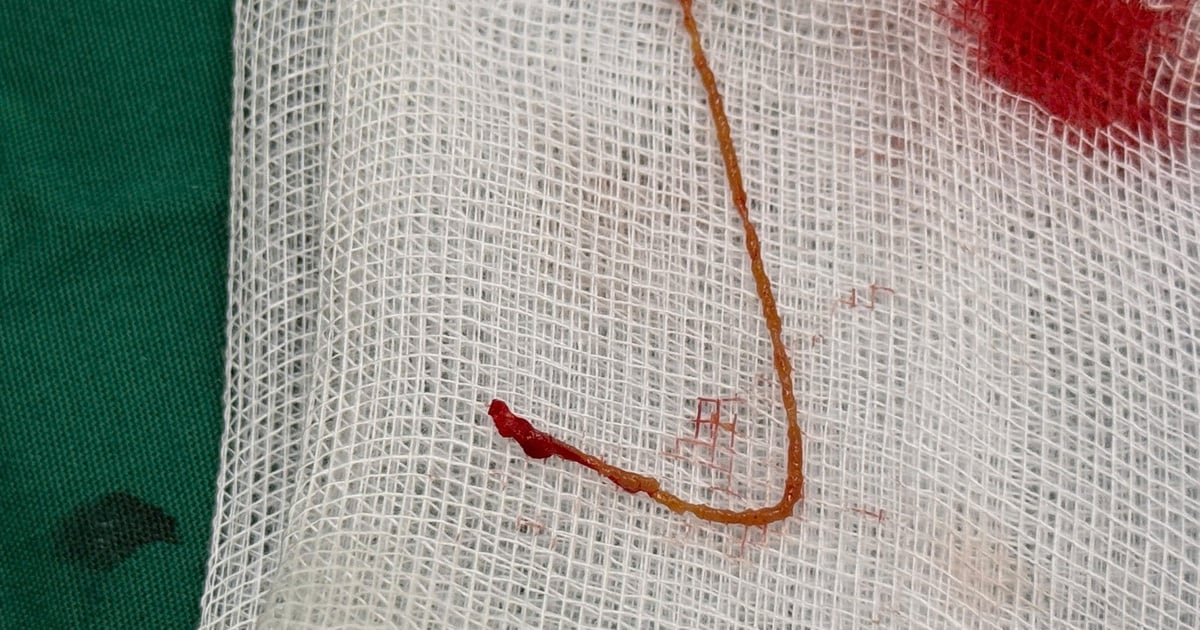

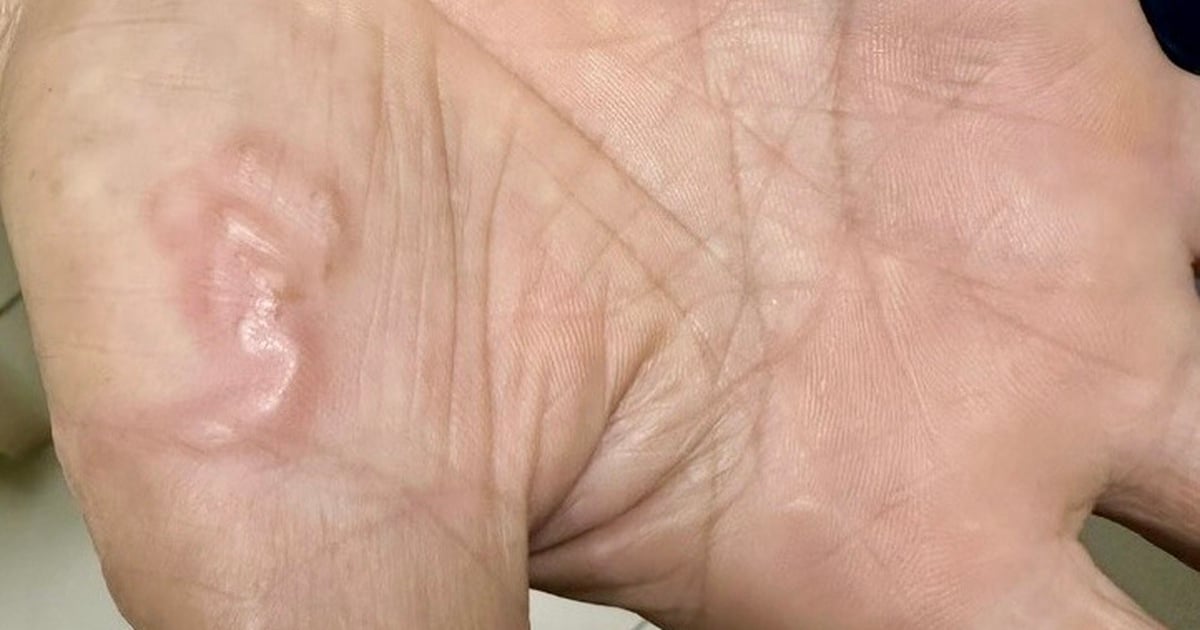
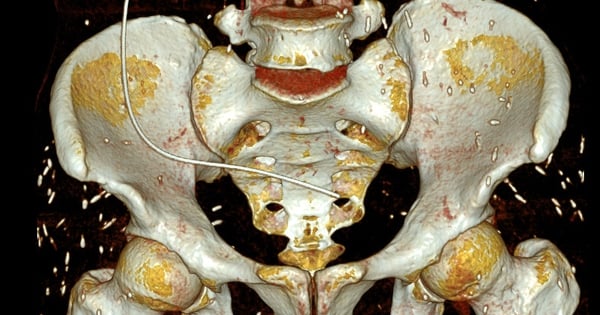


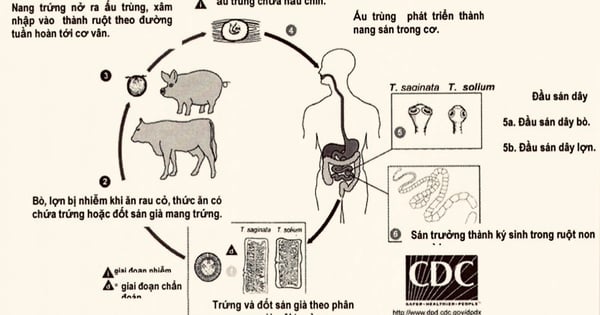







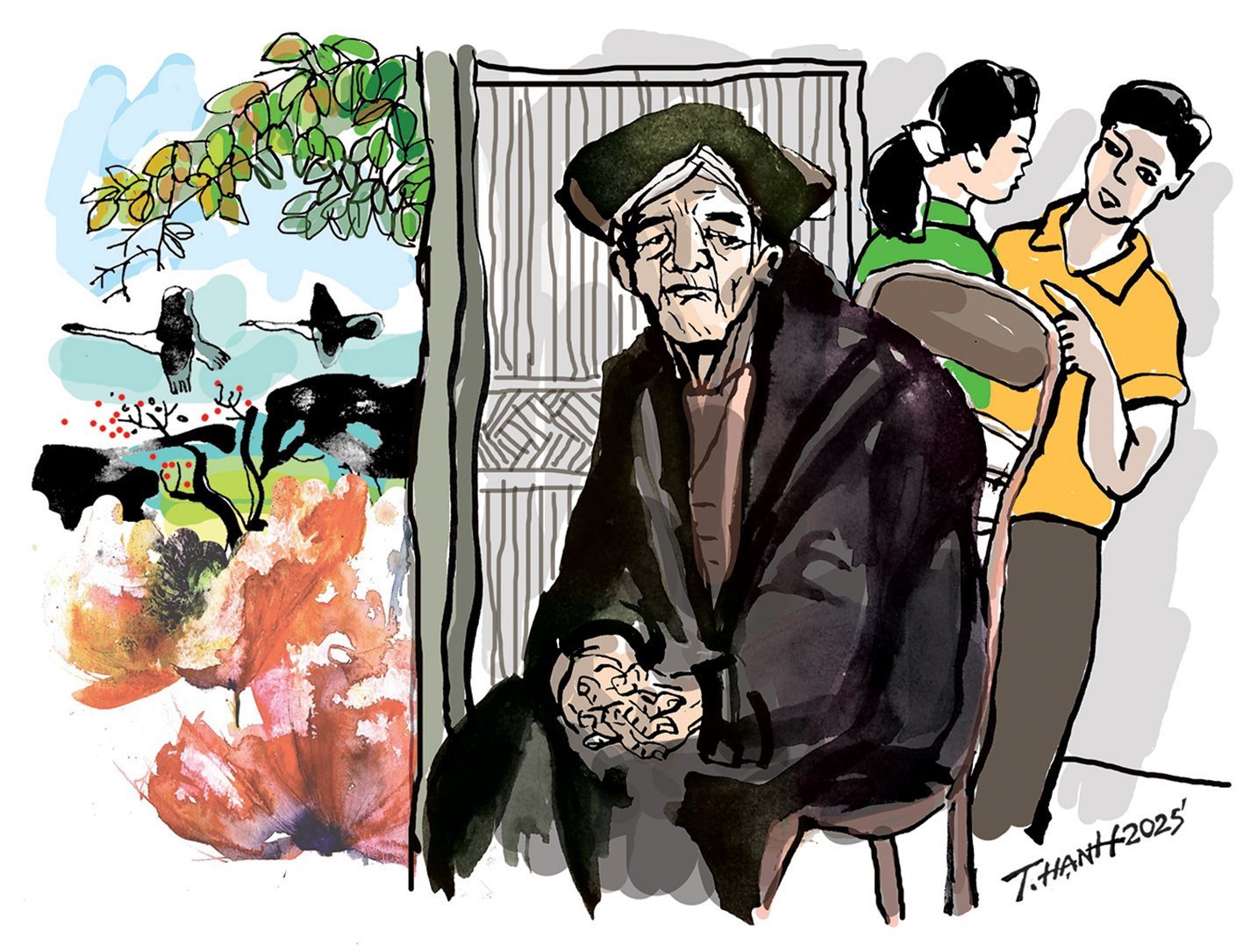








![[Photo] Visiting Cu Chi Tunnels - a heroic underground feat](https://vstatic.vietnam.vn/vietnam/resource/IMAGE/2025/4/8/06cb489403514b878768dd7262daba0b)


























































Comment (0)